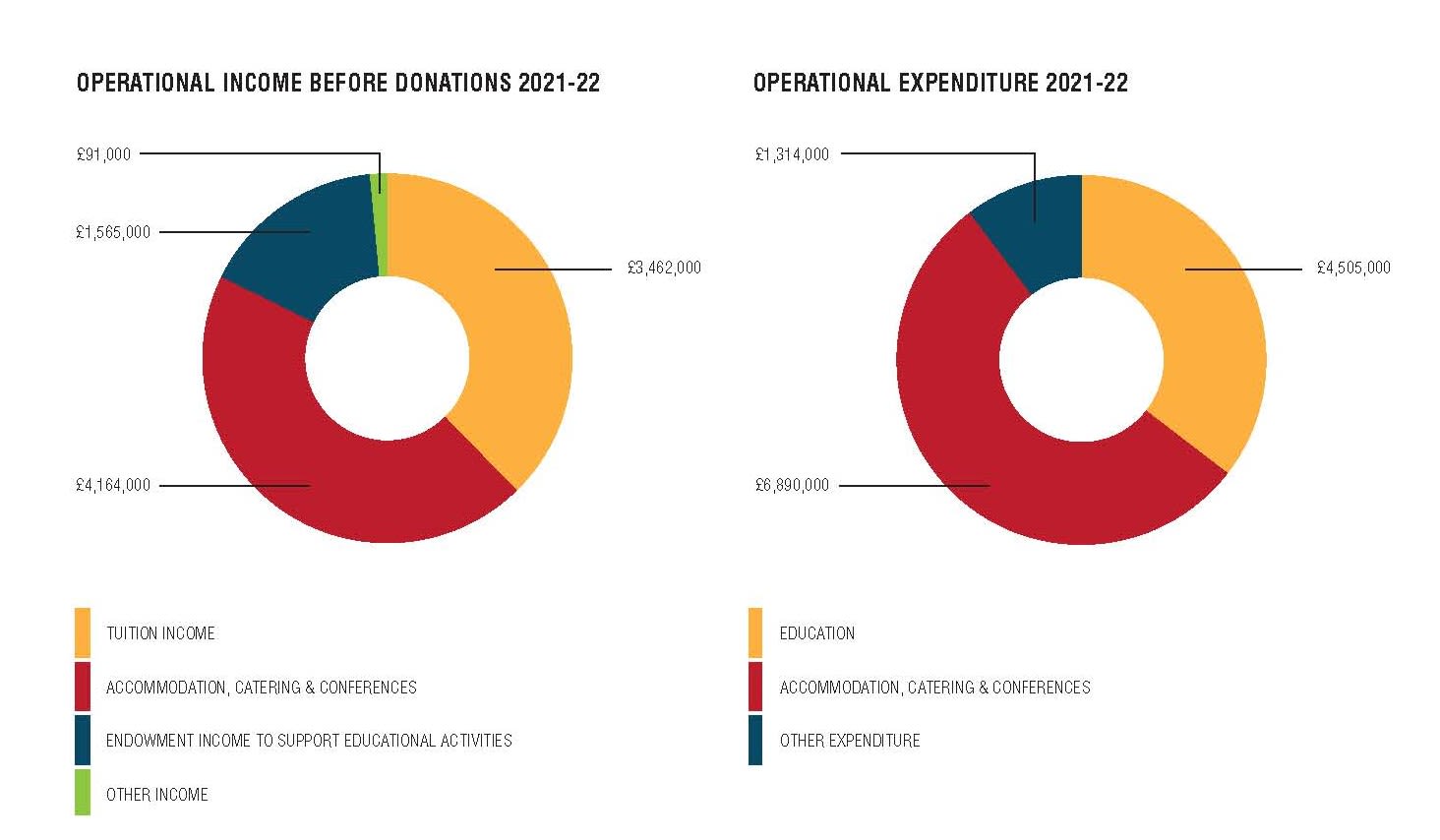Bursar’s Report
As Clare’s new Bursar since 1 October 2022, I would like to begin by thanking my predecessor, David Ball, who acted as interim Bursar for the 2021–2022 academic year. This report reflects David’s sound stewardship of the College finances at a time of unprecedented challenge. Everyone at Clare is grateful for his experience and wisdom, and we wish him well in his retirement. I would also like to thank the Master and Senior Tutor for their warm welcome and many words of wisdom. I am truly fortunate in my colleagues and delighted to be making history with them at the start of Clare’s 50th Anniversary celebrations of co-education.
Like every Bursar before me, I am keenly aware of, and enormously grateful for, the significant contribution that alumni and well-wishers make to the financial sustainability of the College. Such donations have always been important, since the time of Elizabeth de Clare herself; today philanthropic income plays an invaluable role in ensuring that current and future generations of students are able to benefit from the same educational advantages that alumni enjoyed. Having been delighted to discover how many of my friends from other worlds are alumni or have connections to Clare since my appointment was announced, I particularly look forward to being able to thank donors in person for their generosity over the coming months.
As Bursar, I am responsible for all the College’s staff, and I would like to thank them all too, for their warm welcome since I joined the Clare community this term. Their unswerving dedication to providing a high level of service to the whole Clare community has been clear to me from the moment I arrived, and we are incredibly fortunate to have such loyal and hard-working colleagues. I express my thanks to all those alumni who donated to the Emergency Fund which helped us retain and support our dedicated staff during the pandemic and the current cost of living crisis.
The results for the financial year 1 July 2021 to 30 June 2022 once again reflect the impact of the pandemic, with virtually no conference business possible in the summer of 2021. In consequence, the College reported a substantial loss for the second year in succession. Hiring out our accommodation and facilities during the vacations, especially the summer, contributes a vital stream of unrestricted income that supports multiple areas of the College’s educational activities, from sustaining the small group teaching and tutorial systems to providing affordable accommodation and food for students.
Like every Bursar before me, I am keenly aware of, and enormously grateful for, the significant contribution that alumni and well-wishers make to the financial sustainability of the College. Such donations have always been important.
While we did see a promising return of conference business in the summer of 2022 (which falls into the 2022–2023 financial year), our operational costs have increased with inflation, and the sharp increases in energy and food prices, impacting all members of our community, continue to affect our financial position. Moreover, income from tuition fees (which are capped by the government for UK students) covers only half the actual cost of educating our undergraduates. Were we to increase room rents and meal charges to keep pace with rising costs, it would put real pressure on students whose families already face a cost of living crisis. These challenges will require new thinking, bold decision-making and some difficult choices over the coming months and years if we are to achieve long-term financial sustainability.

The factor that still makes it possible for Clare to offer a first-class educational, pastoral and cultural experience is our endowment. Medium-sized by Cambridge College standards, this is currently valued at £161 million, generating an income to support educational activities of around £4.1 million per year, or 24.3% of the College’s annual expenditure. Much of the endowment is restricted, and can only be spent on areas specified by the original donor(s). Unrestricted donations received each year are therefore crucial in enabling the College to respond flexibly to new and changing circumstances. As we look to Clare’s 700th anniversary in 2026 and beyond, increasing the size of the overall endowment, and in particular the size of the unrestricted portion, is therefore a key priority.
In my first few months of being part of this wonderful community, it has been a source of guidance and comfort to learn about how my predecessors, with the support of the whole Clare family, have overcome challenges faced by the College throughout its seven centuries. As I plan my first year in post, I look forward to working with the Master and all members of College on the new strategy and how to ensure Clare has the financial sustainability to support its continuation as an inclusive community and centre of academic excellence into its eighth century and beyond.
